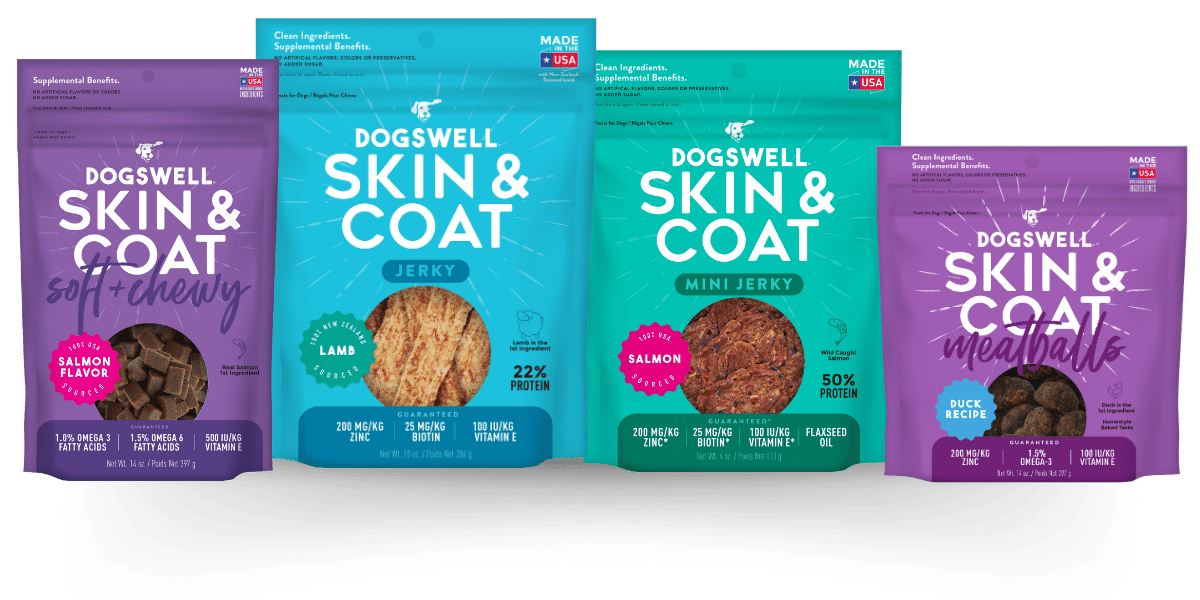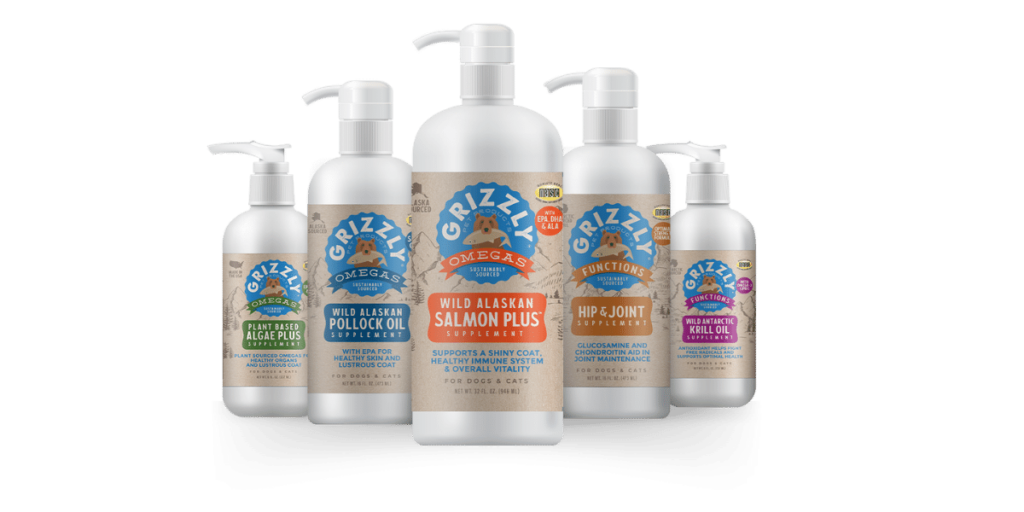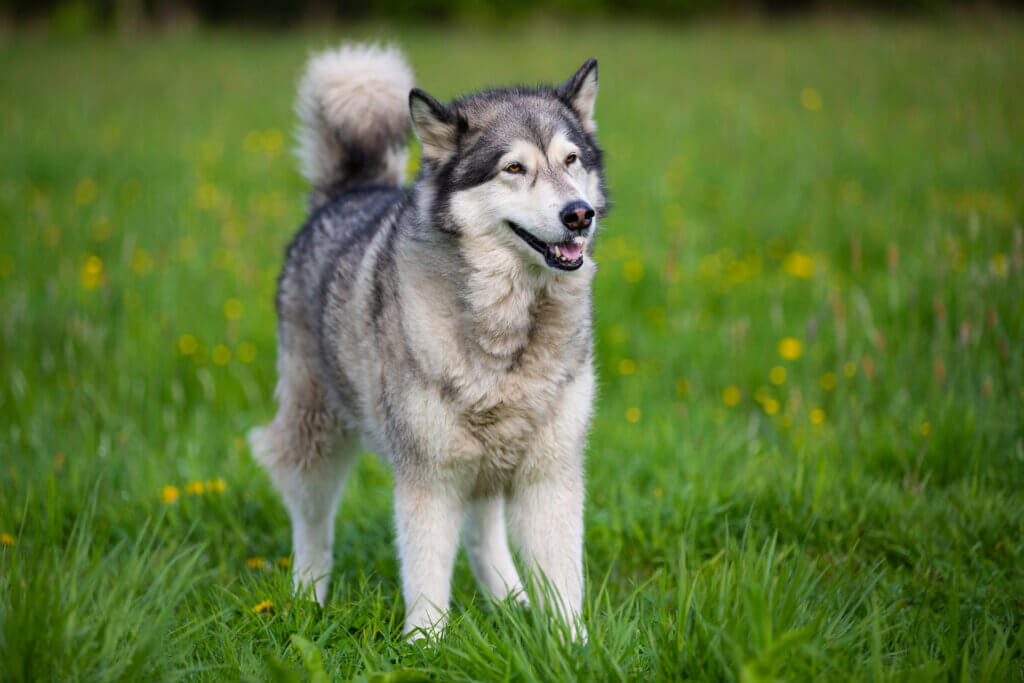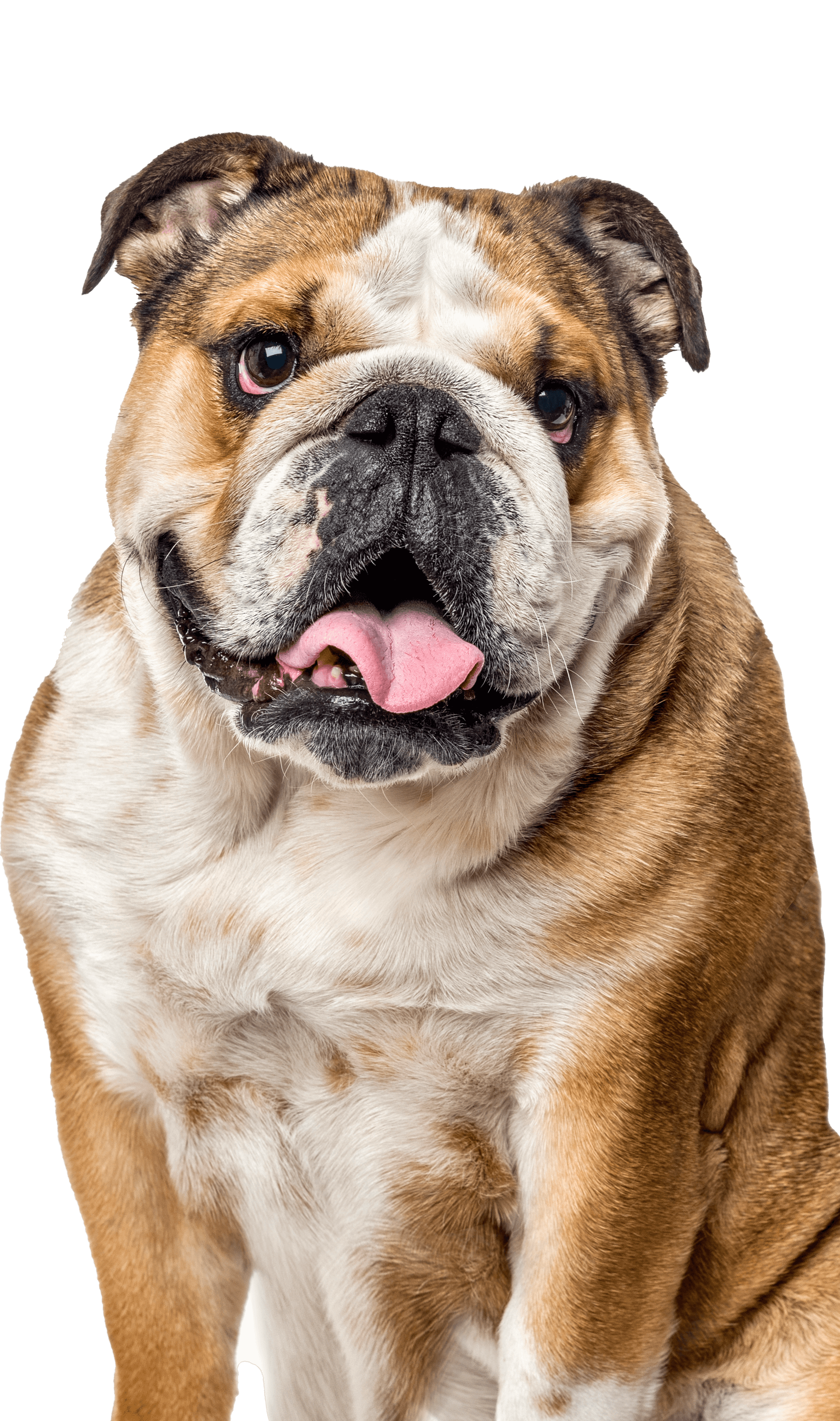When a dog is not in optimal health, it often shows on the outside. Same with humans! Skin and coat issues can be a telltale sign that something’s going on that needs to be addressed.
Here are some of the most common signs of skin and coat issues in dogs:
- Excessive licking or scratching, often in the same spots
- Hot spots, or painful, itchy patches of inflamed skin
- Dry, flaky skin
- Greasy skin
- Bald patches
- Redness, rashes, or sores
- Dry, dull coat
What causes these issues varies widely. They can include:
- Poor nutrition
- Environmental irritants
- Allergies
- Stress
- Dry air
- Insect bites or parasites
- Infections, disorders, or diseases
If you notice that your dog is licking or scratching more than usual or see any changes in your dog’s skin or coat, it’s best to visit your veterinarian. Skin issues are always easier to treat when you have an accurate diagnosis.
Fortunately, there are ways in which you can maintain healthy skin and coat and help prevent these uncomfortable and unsightly conditions. Let’s dive into the two most important things you can do at home to support your dog’s skin and coat.
1. Feed them high-quality nutrition.
Poor diet is one of the biggest contributing factors to poor skin and coat health. Two of the most important nutrients for promoting healthy skin and coat are:
High Protein
Look for food with high amounts of protein from high-quality animal sources, like real chicken, fish, lamb, or beef. Protein plays a fundamental role in skin cell renewal and hair growth. After all, hair is mostly composed of protein!
Omega-3 Fatty Acids
Omega-3 and omega-6 fatty acids are essential nutrients for dogs’ health and well-being. They work together to balance inflammation in the body. Unfortunately, most commercial pet foods today contain too many omega-6s and not enough omega-3s. An elevated omega-6 content may trigger an inflammatory response.
Omega-3 to Omega-6 Ratios

Feeding your dog omega-3 treats and supplements helps balance omega ratios for optimal health. Benefits of omega-3s, like EPA and DHA, include promoting healthy skin and shiny coat, supporting brain function, promoting heart health, immune systems, and joint health. Some of the highest sources of omega-3s are cold-water fish like salmon, as well as algae and flaxseed.
Dogswell Skin & Coat treats help support skin and coat health with ingredients like salmon oil, flaxseed, vitamin E, and biotin. And they’re easy to give, with delicious salmon, duck, or lamb as the first ingredient.

Omega-3 supplements like Grizzly omega oils provide high quantities of omega-3s from wild-caught Alaskan salmon and pollock. When shopping for fish oil, always look for ones sourced from wild-caught fish, which have higher quantities of omega-3s than farmed fish.

2. Pay attention to their grooming needs.
Routinely look over their coat and skin. Check for insects, like fleas and ticks, insect bites, sores, and inflammation. Scan and feel their whole body, including in their ears and between their toes. For occasional skin abrasions and irritation, using Dogswell’s first aid products at home can help soothe and speed recovery.
After looking them over, give them a good brushing. Even if your dog has a short coat, brushing helps stimulate circulation, remove dead skin cells, and distribute natural skin oils. It also helps reduce shedding as well as detangle and prevent mats from forming on longer coats. Bathe your dog only when needed, as bathing too often can dry out their skin, and be sure to use a moisturizing, fragrance-free, hypoallergenic shampoo for dogs.
We all want our dogs to look and feel their best. Fortunately, skin and coat care is typically not complicated, unless your dog has specific needs. In fact, many dogs enjoy being brushed and fed tasty omega-rich treats and supplements, enhancing your relationship and bond with your dog — a win-win!

